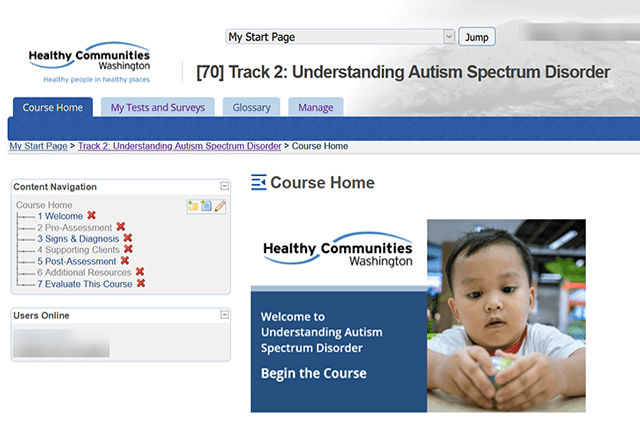Every member of your training team should prioritize your learners’ needs and goals. That’s why having a robust team to keep training running smoothly will pay off quickly. You’ll have a program that reaches its goals, and you’ll spend less time answer questions.
At the hub of the team is the training manager, or a person who can take care of your learning platform. This role is often called a learning management system (LMS) administrator or an online course manager.
The LMS administrator role requires an individual who has experience in managing learning content, creating course materials and communicating with learners.
Your agency might have its own training platform, or you might license courses from a vendor. Even if you hire an outside vendor for this service, you should still have an administrator on your side to oversee your internal training efforts.
The kinds of tasks an LMS administrator will do include:
- Take care of enrolling people into courses
- Coordinating training for learners
- Scheduling cohorts or training groups
- Distribute certifications
- Register learners into course
- Set and consult on learning plans or schedules
- Review knowledge gains for learners
- Run reports based on training completed
Your LMS Administrator Also Needs To Have Strong Organizational Skills, as They Will Be Responsible for Managing Learners in Courses From Start To Finish.
In addition, the LMS administrator should be able to work well under pressure, have excellent communication skills, and possess good leadership qualities.
Communicate Effectively with Learners and Instructors.
An LMS administrator will need to communicate effectively with both learners and instructors. This means being able to clearly explain concepts and procedures to learners, as well as providing feedback to instructors when necessary.
While most vendors and internal agencies have some kind of technical support, it’s often more practical for help to come internally. The LMS admin can be the person to:
- Answer questions about programming and schedules
- Refer learners to resources for onboarding and working with technology
- Help answer simple questions about logging in and retrieving passwords
- Interface between your agency and outside training vendors
Have Strong Organizational Skills.
Your LMS administrator should also be able to organize your work efficiently and effectively. This includes having strong organizational skills, such as prioritizing tasks and managing projects. It’s also helpful to be able to manage multiple projects at once, so you can keep up with deadlines while meeting other goals.
Ongoing online course projects need tending like a garden. As you move from the launch phase to the maintenance phase, you’ll still need to keep managing time. In practice, program managers, facilitators, and LMS administrators need to plan and coordinate with each other, learners, and stakeholders to keep the course relevant and active.
Be Able to Manage Multiple Projects at Once.
A full training program has many moving parts, both with stakeholders and with learners. An LMS administrator can help coordinate cohort scheduling, for example.
They should be:
- Managing groups of participants. This is helpful in case you have the capacity to handle 25 students at once, but 250 would be too many to manage.
- Grouping people together to guide them through a learning path. This is common when learners begin with basic knowledge and advance to more intensive learning. The admin should have knowledge of requirements and competencies each learner has already acquired.
- Coordinating learning opportunities throughout the year. Your agency’s hiring schedule might change depending on funding, the season, and other factors that mean people will enter your program at differing times and need training at other times.
Understand the Importance of User Experience.
A good learning management system (LMS) should provide users with a positive user experience. This means that the interface should be easy to use and intuitive.
But even with learning platforms, there’s an opportunity for customization. The way people funnel through courses, claim certificates, and get notifications of new training opportunities are all management issues that an LMS administrator can help with.
It also means that the LMS should allow users to navigate easily through its features.
Learners should move naturally from one task to the next. Tasks should guide the learners to the right information at the right time.
For instance, you may want the learner to work through the course this way: log in, read any pertinent announcements, review reading material, discuss a project in the bulletin boards, submit a writing assignment.
In this case, make sure the announcement appears on the course homepage and that instructions for the writing assignment are at the end of the reading material. Include enough shortcuts that learners can navigate easily from one task to the next.
Ultimately, the best LMS admins are good learners too. They will be invested in the experience of each learner and be dedicated to helping your program improve.
Armed with this attitude, LMS admins build success by being organized from the beginning and solving problems before learners even know they’re there.



